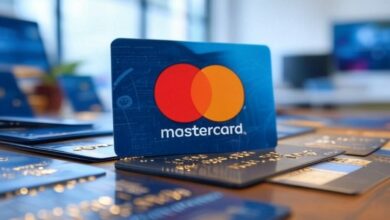Freedium Blockchain Company developing pilot with one of the leading Free Zones in MENA for Commodities backed Crypto stable Currency

UNLOCK interviewed Keba Keinde, the founder and Chairman of Freedium, operating out of DMCC (Dubai Multi Commodities Centre) who talked to us about how Freedium is the first to launch a commodity backed stable crypto currency venture. A Senegal National by Birth Kneide has had much experience in the financial world and has advised numerous governments and international companies on transactions totaling more than $50 billion in MENA and Asia. He is also Chairman and CEO of Millennium Finance Corporation (MFC)
With strong aspirations for people in developing countries Keinde along with his co-founder Aqil Ahmed, Partner and Board Member at MFC, want to redefine the word Freedom to incorporate more than just personal, political, social freedom but encompass within it economic freedom allowing commodity owners and traders in developing countries to transact freely with the rest of the world in a more transparent, efficient, and profitable manner.
As Keinde explained, “We want to solve one of the basic problems that developing countries face, starting with Africa by creating a digital stable crypto-currency that is backed by non perishable commodities such as peanuts, gold, oil and others on a platform that is transparent with inherent KYC/ AML tools using smart contracts.
Differentiating Factor
Unlike other stable crypto-currency projects, Freedium is differentiating itself. According to Keinde, “In addition to using the currency as a means of trade it will also help to finance commodity owners this is especially important when in Africa 50-90% of GDP is from commodities. So we are bringing financing into these countries. Secondly we are fully backed by value from these commodities having created a diversified uncorrelated basket of commodities backing the stable crypto-currency creating stronger stability. We also have a hedging strategy to attract dollars and Euros as first commissioned backed stable currency.”
The Freedium team is also a strong differentiating factor comprised of professionals with proven track records such as such as Aron Dutta, former Global Head of Blockchain at IBM and Chairman of VAPHR, acting as Freedium’s Chief Strategy Officer.
Current Activities
At the moment Freedium is finalizing its preparations of Initial Coin Offering and have partnered on the technology platform with WANCHAIN, VAPHR and BITSAPPHIRE. Keinde states, “We have developed our whitepaper chosen our partners and intend to raise funds by Q3 totaling $45 million from security token, $20 million will be in a pre-public sale, and the rest through ICO. Freedium is incorporate in Zug Switzerland but operates out of Dubai. We chose Dubai as our operational base because it is the leading hub for developing economies, and has one of the world’s leading global trade companies such as DMCC, Dubai ports, JAFZA and others in addition to be a strong advocate of Blockchain technology.”
So it is no surprise that Freedium has a pilot project with one of the leading free zones in the MENA region and hopes to one day work as well with DMCC and others. As Keinde explains, “We are currently developing a pilot with one of the leading free zones in the world which I cannot disclose at the moment. And we hope to work in the future with other free zones, and stakeholders.” In addition Freedium will be acquiring or using warehouses around the world to store the commodities on Freedium.
From Africa with Freedium
Developing countries specifically in Africa face numerous constraints to developing a strong commodity trade market which slows down the growth in these countries. As Keinde explains, “Most African countries have a weak banking sector with less than 20% of their populations having bank accounts or access to credit. In addition most of these countries have a weak volatile currency making it difficult to exchange to dollars and Euros. In addition with global de-risking after 2008 many international banks either closed operations or ceased to deal with African central Banks. This makes the need for a digitized commodity backed stable crypto currency even more urgent.”
So Freedium hopes to provide access to financing, paving the way for enhanced financial inclusions and more cost efficient trade as well as tap into the remittance market worth $350 billion per annum. Keinde states, “Africa itself has over $50 billion worth of remittances coming in. However with fees as high as 10-11% a lot of this money does not enter the continent, by using Freedium remittance beneficiaries can exchange to fist or use Freedium Stable currency. We are working with leading banks to build this as this will increase liquidity and they can issue currency against commodities.”
Freedium plans to be operational by Q3 of 2018 and issue its first Freedium coin by the end of the year.





